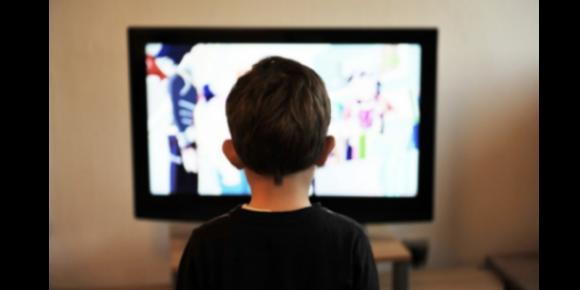Screen Time

- posted: Jun. 20, 2019
Screen Time
There’s no way around it, technology is a big part of our world today. And it is playing a big role in the lives of our children. Failure to be proactive about our children’s media consumption will result in unwanted consequences and, potentially, long term problems. Here are some thoughts to consider in developing a proactive plan for your child’s media consumption.
What is screen time?
This is all television, video, movie, computer, video game, tablet, and social media usage combined.
How much screen time is ok?
The American Academy of Pediatrics (AAP) recommends no screen time for children under 2 years old. For children between 2-5 years old only 1 hour per day of high quality educational screen time is recommended. Beyond 5 years old the recommendation is more complicated because children often use media at school or for homework, but limiting time on electronics beyond school work and encouraging a variety of non-electronic activities is a must.
HAVE A PLAN
We must make, and adhere to, a plan! The AAP has created a great resource to help you get started. This can be found at HealthyChildren.org/MediaUsePlan. The resource will guide your family in making a plan (specific to your child’s age) on what types of media can be used, for how long and where, as well as suggesting “media free” zones like the dinner table or bedrooms.
Monitoring usage
Keeping track of our children’s media usage (type and amount) can be challenging but it is worth the effort. There are programs available to assist with this like Net Nanny, Screen Time or other parental control software. Some apps are available that can be set to limit a child’s time on a device. Also, having rules about internet use only in common spaces, like the living room or kitchen, can make it easier to visually monitor children’s usage.
Be educated on media
The landscape is constantly changing and the more we know the easier it will be to protect our children. Researching apps or trying them out before allowing kids to use them can be helpful. Information can be gained too from websites like Common Sense Media where movies, video games, YouTube channels, etc. are reviewed and age suggestions are given.
Educate your children on media
Children often do not think about the dangers of their media usage. Explaining to kids privacy concerns and why they should not post their address or identifiers like school name is important. Also, enabling privacy settings offers some protection. Children are the target of advertising much of the time. Making them aware of this and the ways companies try to influence them can help them think more critically when using media. Having conversations about topics like “sexting” and cyberbullying are important as well.
Health risks
There are some specific health risks associated with media consumption. Research has showed an association between the more hours watched of tv and obesity, so encourage children to turn it off and get moving. We also know from research that tv and other electronics disrupt sleep. “Putting devices to bed” outside of the bedroom and not having televisions in bedrooms can help prevent this. Gaming addictions are a real problem that pose their own set of health risks. There are educational/learning concerns that occur as well, especially when media is introduced at a young age or is very fast paced.
Be the example
We must practice what we preach. If we want our children to limit media usage we must do the same. If being a responsible “internet citizen” is the goal then we have to show them how we do that. The area of electronic media is like all other areas of parenting. Our responsibility is to protect our children while leading and guiding them so they can eventually be independent responsible users.

- posted: Jun. 20, 2019
Screen Time
There’s no way around it, technology is a big part of our world today. And it is playing a big role in the lives of our children. Failure to be proactive about our children’s media consumption will result in unwanted consequences and, potentially, long term problems. Here are some thoughts to consider in developing a proactive plan for your child’s media consumption.
What is screen time?
This is all television, video, movie, computer, video game, tablet, and social media usage combined.
How much screen time is ok?
The American Academy of Pediatrics (AAP) recommends no screen time for children under 2 years old. For children between 2-5 years old only 1 hour per day of high quality educational screen time is recommended. Beyond 5 years old the recommendation is more complicated because children often use media at school or for homework, but limiting time on electronics beyond school work and encouraging a variety of non-electronic activities is a must.
HAVE A PLAN
We must make, and adhere to, a plan! The AAP has created a great resource to help you get started. This can be found at HealthyChildren.org/MediaUsePlan. The resource will guide your family in making a plan (specific to your child’s age) on what types of media can be used, for how long and where, as well as suggesting “media free” zones like the dinner table or bedrooms.
Monitoring usage
Keeping track of our children’s media usage (type and amount) can be challenging but it is worth the effort. There are programs available to assist with this like Net Nanny, Screen Time or other parental control software. Some apps are available that can be set to limit a child’s time on a device. Also, having rules about internet use only in common spaces, like the living room or kitchen, can make it easier to visually monitor children’s usage.
Be educated on media
The landscape is constantly changing and the more we know the easier it will be to protect our children. Researching apps or trying them out before allowing kids to use them can be helpful. Information can be gained too from websites like Common Sense Media where movies, video games, YouTube channels, etc. are reviewed and age suggestions are given.
Educate your children on media
Children often do not think about the dangers of their media usage. Explaining to kids privacy concerns and why they should not post their address or identifiers like school name is important. Also, enabling privacy settings offers some protection. Children are the target of advertising much of the time. Making them aware of this and the ways companies try to influence them can help them think more critically when using media. Having conversations about topics like “sexting” and cyberbullying are important as well.
Health risks
There are some specific health risks associated with media consumption. Research has showed an association between the more hours watched of tv and obesity, so encourage children to turn it off and get moving. We also know from research that tv and other electronics disrupt sleep. “Putting devices to bed” outside of the bedroom and not having televisions in bedrooms can help prevent this. Gaming addictions are a real problem that pose their own set of health risks. There are educational/learning concerns that occur as well, especially when media is introduced at a young age or is very fast paced.
Be the example
We must practice what we preach. If we want our children to limit media usage we must do the same. If being a responsible “internet citizen” is the goal then we have to show them how we do that. The area of electronic media is like all other areas of parenting. Our responsibility is to protect our children while leading and guiding them so they can eventually be independent responsible users.
Visit our Office
Suwanee Location
4395 Johns Creek Parkway
Suwanee, GA 30024
